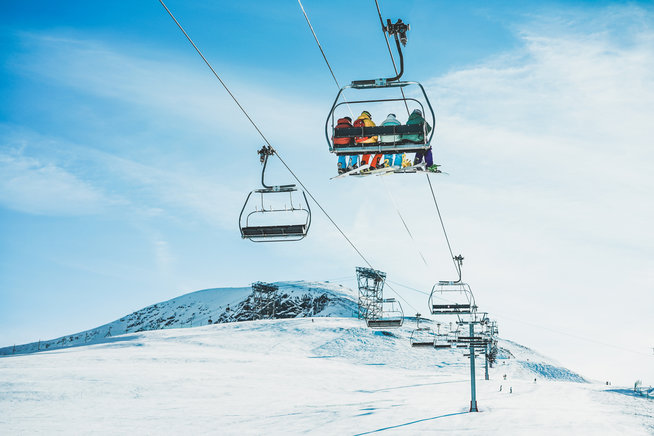Can Assumption of Risk Impact Your Colorado Ski Accident Claim?
Colorado’s world-renowned ski resorts attract millions of visitors each year who come to experience the state’s exceptional powder and challenging terrain, but skiing inherently involves risks including falls, collisions, and equipment failures that can result in serious injuries. When accidents occur on the slopes, injured skiers often wonder whether they can pursue compensation from ski resorts, other skiers, or equipment manufacturers, particularly given Colorado’s assumption of risk laws that may limit liability in certain circumstances. Understanding how these legal principles apply to ski accident claims becomes crucial for anyone who suffers injuries while enjoying Colorado’s mountain recreation opportunities.
The concept of assumption of risk doesn’t automatically bar all ski accident claims, but it does create additional challenges that require experienced legal analysis to overcome. At Mintz Law Firm, we understand the complex interplay between Colorado’s assumption of risk statutes and personal injury law, helping injured skiers navigate these challenging cases to secure compensation when negligence contributes to their injuries. Our legal team has extensive experience with mountain recreation accidents and knows how to build compelling cases even when assumption of risk defenses are raised.
Understanding Colorado’s Ski Safety Act
Colorado’s Ski Safety Act establishes specific rules governing the responsibilities of both ski area operators and skiers, creating a framework that addresses liability while acknowledging the inherent risks associated with skiing and snowboarding. The Act requires ski areas to maintain equipment properly, mark hazards clearly, and provide adequate warnings about dangerous conditions, while also outlining skiers’ responsibilities to ski within their abilities and maintain control at all times. These statutory requirements create legal duties that, when violated, can form the basis for successful personal injury claims despite assumption of risk defenses.
The Act specifically identifies certain risks as inherent to skiing, including changing weather conditions, variations in terrain, and collisions with natural objects like trees and rocks. However, it also recognizes that ski areas have duties to address known hazards, maintain lifts and other equipment safely, and provide adequate instruction and warnings about dangerous conditions. When ski resorts fail to meet these obligations, injured skiers may have valid claims for compensation regardless of assumption of risk arguments, particularly when negligent maintenance or inadequate warnings contribute to accidents.
When Assumption of Risk Doesn’t Apply
Assumption of risk defenses don’t protect defendants from liability when their negligence goes beyond the inherent risks of skiing that participants voluntarily accept. Ski resorts may be held liable for accidents caused by inadequate equipment maintenance, failure to mark hazardous conditions properly, or creating dangerous situations through negligent grooming or trail design. Equipment manufacturers can face liability when defective bindings, helmets, or other gear fail to perform as designed, causing injuries that wouldn’t have occurred with properly functioning equipment.
Collisions with other skiers present complex liability issues where assumption of risk may not apply if one party violated skiing safety rules or acted recklessly. Snowboard accidents involving dangerous behavior, skiing under the influence, or failure to yield right of way can result in successful personal injury claims when defendants’ actions exceed the risks participants normally accept. Ski instructors and guides who provide inadequate instruction or lead clients into dangerous situations beyond their skill levels may also face liability despite assumption of risk arguments.
Building Strong Ski Accident Claims
Successful ski accident cases require thorough investigation of all factors contributing to injuries, including equipment condition, weather conditions, trail maintenance, and the actions of all parties involved. We work with accident reconstruction professionals who understand mountain conditions and skiing dynamics to determine how accidents occurred and whether negligence played a role. Medical documentation becomes crucial for demonstrating the severity of injuries and their impact on victims’ lives, particularly when dealing with head injuries, broken bones, or spinal cord damage common in serious ski accidents.
Witness statements from other skiers, lift operators, and ski patrol members help establish the circumstances surrounding accidents and whether any parties violated safety rules or acted negligently. Photographs of accident scenes, equipment involved, and trail conditions provide valuable evidence, while expert testimony from skiing professionals can explain how accidents could have been prevented through proper safety measures. We also examine ski area policies, employee training records, and maintenance logs to identify systemic problems that may have contributed to dangerous conditions.
Get Help from Mintz Law Firm for Your Ski Accident Claim
Ski accident cases involving assumption of risk defenses require experienced legal representation who understands both Colorado’s recreational liability laws and the complex factors that contribute to mountain accidents. At Mintz Law Firm, we have successfully represented numerous clients injured in skiing and snowboarding accidents throughout Colorado, securing substantial compensation even when assumption of risk defenses are raised. Our legal team combines extensive knowledge of Colorado personal injury law with deep understanding of mountain recreation activities and the unique challenges these cases present.
Our founder David J. Mintz has represented injured people throughout Colorado and across the country for more than 35 years, while managing attorney Eric C. Staton brings over 15 years of personal injury experience to every case. With more than 300 years of combined legal experience and a proven track record of recovering over $20 million annually for clients since 2016, we have the knowledge and resources necessary to overcome assumption of risk defenses and secure fair compensation for ski accident victims. Contact Mintz Law Firm today at (303) 462-2999 to schedule your free consultation, or complete our online contact form to discuss your ski accident claim and learn how we can help you pursue justice.

